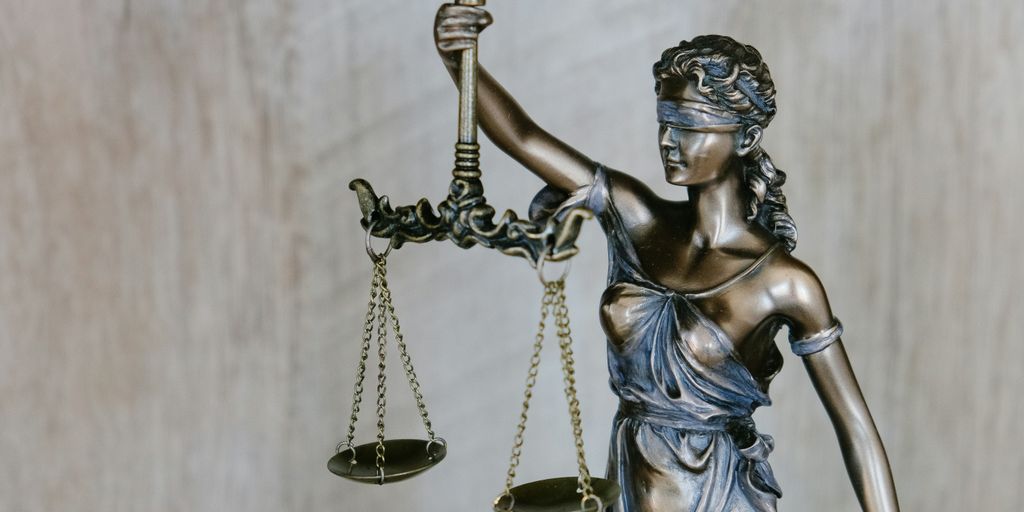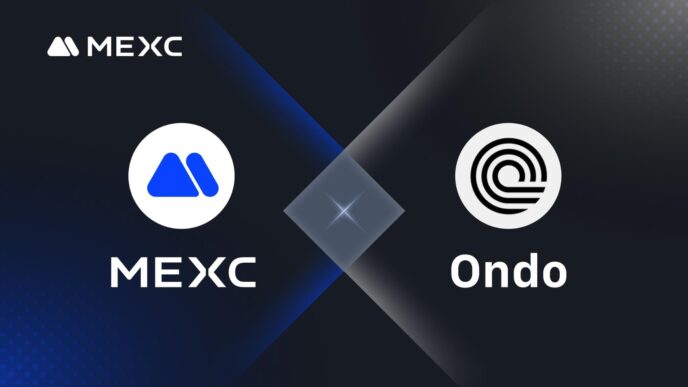So, you’ve probably heard about NetChoice v. Bonta, right? It’s a pretty big deal for anyone who uses the internet, which is basically everyone these days. This whole legal fight is about a California law that tries to regulate how online platforms operate, especially when it comes to kids. But the platforms, represented by NetChoice, are saying, “Hold on a minute, this law messes with our free speech!” It’s a complicated situation, balancing protecting users with not stifling online expression. Let’s break down what’s happening and why it matters for the future of the internet.
Key Takeaways
- The NetChoice v. Bonta case is a major legal battle over a California law aimed at regulating online platforms, with a federal judge putting the law on hold because of First Amendment concerns.
- A big part of the argument is whether online platforms are just neutral spaces or if they actually make editorial choices about content, which changes how free speech rules might apply.
- NetChoice, representing major tech companies, says it has the right to challenge the law on behalf of its members, arguing the law forces them to make expensive changes.
- This case isn’t just about free speech; it also touches on whether the law is really regulating economic activity, like how platforms collect and use data, rather than speech itself.
- The outcome of NetChoice v. Bonta could really shake things up for internet policy across the country, potentially leading to a confusing mix of state laws or even one state setting the rules for everyone.
Understanding the NetChoice v. Bonta Legal Challenge
The Preliminary Injunction Against the California Law
So, NetChoice v. Bonta is a big deal, right? It all started when NetChoice, which is basically a group representing tech giants like Google and Meta, challenged a California law. This law was aimed at protecting kids online, but NetChoice argued it violated the First Amendment. A judge agreed, issuing a preliminary injunction against the law. This means the law couldn’t be enforced while the case was being decided. It’s like hitting pause on the whole thing. The judge, Beth L. Freeman, thought NetChoice had a good chance of proving the law was unconstitutional.
Attorney General Bonta’s Appeal Arguments
Of course, California’s Attorney General, Robert Bonta, wasn’t too happy about that. He appealed the decision, arguing that the lower court got it all wrong. Bonta’s main point? He said the law wasn’t about regulating speech, but about regulating economic activity. He thinks the court used the wrong standard to review the law because of this "mischaracterization". Basically, he’s saying the law is a neutral regulation of economic activity, not a restriction on what people can say online. It’s a pretty important distinction, because if it’s about economic activity, it’s easier to defend.
The Role of Amicus Briefs in the Appeal
Now, here’s where it gets even more interesting. Amicus briefs! These are basically friend-of-the-court briefs, where people or organizations who aren’t directly involved in the case can weigh in with their opinions. In this case, lots of groups filed briefs. Some supported Bonta, like design scholars and the American Academy of Pediatrics. Others supported NetChoice, like the Chamber of Commerce. These briefs can be super influential, because they give the court different perspectives and arguments to consider. For example, the ACLU says the court should strike down the CAADCA in its entirety. It’s like a whole bunch of extra voices chiming in on the debate.
First Amendment Implications in NetChoice v. Bonta
The NetChoice v. Bonta case brings up some serious questions about the First Amendment and how it applies to the internet. It’s not just about free speech in the abstract; it’s about how that right plays out on platforms used by millions every day. The debate centers on whether California’s law oversteps its bounds by trying to regulate content and features on these platforms, especially when it comes to kids.
Facial Unconstitutionality and Speech Restrictions
Judge Freeman initially sided with NetChoice, suggesting the law is "facially unconstitutional." This means that, on its face, the law violates the First Amendment. The core argument is that the law imposes speech restrictions. NetChoice argues that the Act violates member organizations’ First Amendment rights because it’s too vague, imposes speaker- and content-based restrictions, and is overinclusive and underinclusive.
Strict Scrutiny and Lesser Scrutiny Standards
When a law restricts speech, courts use different levels of review. Strict scrutiny is the highest level, applied when a law targets speech based on its content. The government has to prove it has a compelling interest and the law is narrowly tailored to achieve that interest. Lesser scrutiny, like intermediate scrutiny, is used for content-neutral laws. The debate here is whether the California law should be subject to strict scrutiny because it targets speech, or a lesser standard because it’s meant to regulate economic activity. Some argue that even under lesser scrutiny, the law fails because it burdens speech more than necessary.
Balancing Free Expression and User Protection
This case highlights the tension between protecting free expression and safeguarding users, especially children, from harmful content. Everyone agrees kids need protection, but the question is how far the government can go without trampling on First Amendment rights. Some argue that the California law is a necessary step to protect children’s mental health, while others worry it could lead to censorship and limit access to information. It’s a tough balancing act with no easy answers.
NetChoice’s Standing and Member Representation
NetChoice as an Internet Trade Association
NetChoice operates as a trade association, advocating for the interests of various online platforms. Its primary goal is to ensure a safe and open internet environment for both businesses and users. Think of them as a voice for the tech industry, especially when new laws and regulations threaten how the internet works. They step in to represent their members’ concerns in legal battles, like the NetChoice v. Bonta case, arguing that certain laws could harm the internet ecosystem. They aren’t just some random group; they’re a well-established organization with a clear mission.
Representing Major Online Platforms
NetChoice’s membership includes some of the biggest names in the online world. We’re talking about major social media networks, e-commerce sites, and other significant players in the digital space. This broad representation gives NetChoice considerable weight when it comes to legal challenges. When NetChoice brings a case, it’s not just one company complaining; it’s a united front of major platforms arguing that a law could negatively impact their operations and, more importantly, the way people use the internet. It’s like having a whole team of all-stars on your side. The Attorney General Yost insists that the interests of members and users are fatally divergent because the members’ “primary product is their users—including Ohio children—and userdata, not the content they host.”
Standing to Bring Claims on Behalf of Members
One of the key legal questions in NetChoice v. Bonta is whether NetChoice even has the right to bring the lawsuit in the first place. This is about "standing," a legal concept that determines who can sue. NetChoice argues that it has associational standing, meaning it can represent its members because those members would have standing to sue on their own. To prove this, they need to show that their members would be directly harmed by the law, that the lawsuit aligns with NetChoice’s mission, and that individual member participation isn’t required. If NetChoice can prove all of that, they can fight the law on behalf of all their members, which is a pretty big deal. The Supreme Court has established an “irreducible constitutional minimum” of standing containing three elements: (1) an “injury in fact” that is concrete and particularized and actual and imminent; (2) “a causal connection between the injury and the conduct complained of”; and (3) a likelihood that the injury will be redressable by the court.
The Nature of Online Platforms and Content Moderation

Platforms as More Than Mere Conduits
For a long time, the discussion around online platforms has been whether they’re just neutral spaces for information to pass through. But that’s a pretty simplistic view. The reality is that these platforms actively shape the content users see and interact with. They aren’t like old-school phone companies that just connect calls; they’re more like curated spaces. The FCC and FTC’s recent actions jeopardize content moderation practices, which are essential for maintaining safe online environments.
Editorial Discretion Over Platform Content
Think about it: platforms decide what gets promoted, what gets flagged, and what gets taken down. That’s editorial discretion. They’re making choices about the kind of community they want to build. It’s not just about user-generated content; it’s about the platform’s overall message and values. They curate both users and content to convey a message about the type of community the platform seeks to foster. This is a key distinction that impacts how we view regulations.
Distinction from Broadband Providers
It’s easy to confuse online platforms with broadband providers, but they’re fundamentally different. Broadband providers offer internet access, acting as neutral carriers of data. Online platforms, on the other hand, actively manage and moderate the content that flows through their systems. They aren’t engaged in indiscriminate, neutral transmission of any and all users’ speech. This difference is crucial when considering how laws should apply to each. The debate often revolves around whether regulations are [content-based regulation].
Economic Activity Versus Speech Regulation
Mischaracterization of Regulations
It’s easy to fall into the trap of simplifying complex regulations. Sometimes, laws that seem like they’re just about regulating business practices are actually sneaky ways of controlling what people can say and see online. The Attorney General might say a law is about the ability of minors to contract, but a court might see it as an access law masquerading as a contract law. This is especially true when the law impacts the publication and distribution of speech. It’s like saying you’re regulating the price of paint, but really, you’re dictating what colors an artist can use.
Neutral Regulation of Economic Activity
There’s a difference between regulating economic activity and regulating speech. If a law genuinely applies neutrally to economic activity, it’s on firmer ground. For example, a general sales tax that applies to all businesses, including online platforms, is likely fine. However, if a law targets specific business models because of the content they host or the views they promote, that’s a red flag. It’s not always a clear line, and courts have to carefully consider the intent and effect of the law. The Ohio age verification law was permanently halted because the court distinguished between regulating economic activity and regulating speech based on ideology or opinion.
Data Capitalism and Exploitative Business Models
Some argue that the way online platforms operate is inherently exploitative. They collect massive amounts of user data and use it to target ads and manipulate behavior. This is sometimes called "data capitalism." The argument goes that regulating these practices isn’t about suppressing speech, but about protecting users from harmful business models. However, even if a business model is seen as exploitative, regulations still need to be carefully tailored to avoid infringing on First Amendment rights. It’s a balancing act between protecting users and preserving free expression. The constitutional issues are not diminished by the commercial nature of the impacted speech. For example, penalizing a company for its profit-driven activities, which support expressive endeavors, essentially penalizes the company itself, as it runs the company to uphold its personal expressive interests.
Potential Impact on National Internet Policy
Fractured Internet Landscape from State Laws
Imagine a world where every state has its own internet rules. Sounds messy, right? That’s a real possibility if the NetChoice v. Bonta ruling doesn’t go the right way. If individual states can dictate what’s allowed online, we could end up with a patchwork of regulations that make the internet a confusing place. Think about it: what’s okay to view in California might be a no-go in Texas. This creates a headache for everyone, especially smaller platforms that don’t have the resources to comply with 50 different sets of rules. It’s like having to learn a new language every time you cross a state line – only this time, it’s about what you can and can’t see online. NetChoice contends that this would be an unconstitutional regulation.
Single State Dictating National Policy
Here’s another scary thought: what if one state’s law effectively becomes the law of the land? It could happen. If a big state like California passes a law that’s hard to avoid, websites might just change their policies for everyone, everywhere. Why? Because it’s easier than trying to block users from that one state. So, even if you live in a state with more relaxed rules, you’re stuck with California’s standards. This means a single state could end up setting the tone for the entire nation’s internet experience. It’s like one person in a group project doing all the work and deciding everything for everyone else.
Disproportionate Effects on Marginalized Groups
And here’s the kicker: these kinds of laws often hurt the people who need the internet the most. Think about marginalized groups – women, people of color, LGBTQ+ individuals, religious minorities. These groups often rely on the internet to connect, organize, and access vital information. If a state decides to block certain types of content, it could disproportionately affect these communities. For example, access to reproductive and sexual health information could be blocked. It’s like taking away a lifeline from the people who need it most. It’s not just about inconvenience; it’s about limiting access to essential resources and silencing voices that need to be heard.
Compliance Measures and Constitutional Injury
Costly Compliance for Online Platforms
Okay, so imagine you’re running a website. Now, some new law pops up, and suddenly you need to spend a ton of money just to make sure you’re following it. That’s what’s happening here. Online platforms are facing potentially huge compliance costs because of these new regulations. It’s not just a little tweak; it could mean re-engineering entire systems. Think about the cost of new software, legal advice, and employee training. It all adds up, and for some smaller platforms, it could be a real problem. NetChoice argues that these costs are unrecoverable, meaning there’s no way for them to get that money back, even if they win the case later. This financial burden is a key part of their argument for standing.
Measuring Injury to Expression
It’s not just about the money, though. The platforms are also saying that these laws hurt their ability to express themselves. They argue that content moderation is a form of speech, and these laws are forcing them to host or remove content they wouldn’t otherwise. This gets into tricky First Amendment territory. How do you measure the injury to expression? It’s not as simple as counting dollars and cents. NetChoice contends that its members have a First Amendment right to disseminate protected speech. The argument is that the law adds extra requirements before one can speak, then scrutiny must be heightened and the law found unconstitutional. The brief also contends that the constitutional issues are not diminished by the commercial nature of the impacted speech. It claims that penalizing the company for its profit-driven activities, which support expressive endeavors, essentially penalizes Masnick himself, as he runs the company to uphold his personal expressive interests. This is where the idea of "constitutional injury" comes in – the idea that the law itself is violating their rights, even before it’s fully enforced. If constitutional rights are threatened or impaired, irreparable injury is presumed. The loss of First Amendment freedoms constitutes irreparable injury.
Section 230 Preemption Considerations
Section 230 of the Communications Decency Act is a big deal for online platforms. It basically says that platforms aren’t liable for the content their users post. But what happens when a state law tries to regulate content moderation? That’s where preemption comes in. Preemption means that federal law trumps state law when there’s a conflict. So, if a state law tries to hold a platform liable for something Section 230 protects, the state law might be preempted. This is a key part of the legal battle. Does the California law conflict with Section 230? If it does, it could be struck down. The plaintiffs in October 2024 initiated a challenge, and a preliminary injunction was granted in the case of CCIA-NetChoice v. Uthmeier on June 3, 2025. It’s a complex legal question with huge implications for the future of the internet.
Conclusion
So, what does all this mean for online platforms? Well, the NetChoice v. Bonta case is a big deal. It really makes you think about how much control states can have over what happens online, especially when it comes to kids. The court’s decision to put a stop to the California law, at least for now, shows that there are some serious questions about free speech and how the internet works. It’s not just about protecting kids, which everyone agrees is important. It’s also about making sure that platforms can still operate without a bunch of different rules from every state. This whole situation is still playing out, and it’s going to be interesting to see how it all shakes out in the end. One thing is for sure: the way we use the internet, and how it’s regulated, is definitely changing.
Frequently Asked Questions
What is NetChoice v. Bonta all about?
NetChoice is a group that represents big internet companies like Google and Meta. They sued the state of California because they believe a new law, called the California Age-Appropriate Design Code Act (CAADCA), goes against their right to free speech. They think this law, which aims to protect kids online, makes it too hard for them to run their businesses and express themselves.
How does the First Amendment relate to this case?
The First Amendment protects free speech. NetChoice argues that the California law forces them to change how their websites work, which is like telling them what they can and can’t say. They believe this law is unconstitutional because it limits their ability to share information and connect with users, which they see as a form of speech.
Why can NetChoice sue on behalf of its members?
The court decided that NetChoice has the right to bring this lawsuit because they represent many big online platforms. These platforms would have to spend a lot of money and change their services to follow the new California law. The court agreed that this would cause them real harm, so NetChoice can speak up for its members.
Are online platforms like regular phone companies?
Online platforms are more than just simple pipes that carry information. They actively choose what content to show and how to show it. This is like a newspaper editor deciding what stories to print. Because they make these choices, they have editorial control, which is different from a phone company that just connects calls without caring about what’s being said.
Is this case about money or free speech?
Some people argue that the California law isn’t about controlling speech, but about regulating how companies make money from user data. They say that big tech companies make a lot of money by collecting information about kids, and the law just tries to make that business safer for children, not to stop free speech.
What could happen if states make their own internet laws?
If every state makes its own rules for the internet, it could become a confusing mess. A website might be legal in one state but not in another. This could make it hard for online platforms to operate across the country and might even limit what everyone can see and do online, especially for groups that are already not heard as much.








